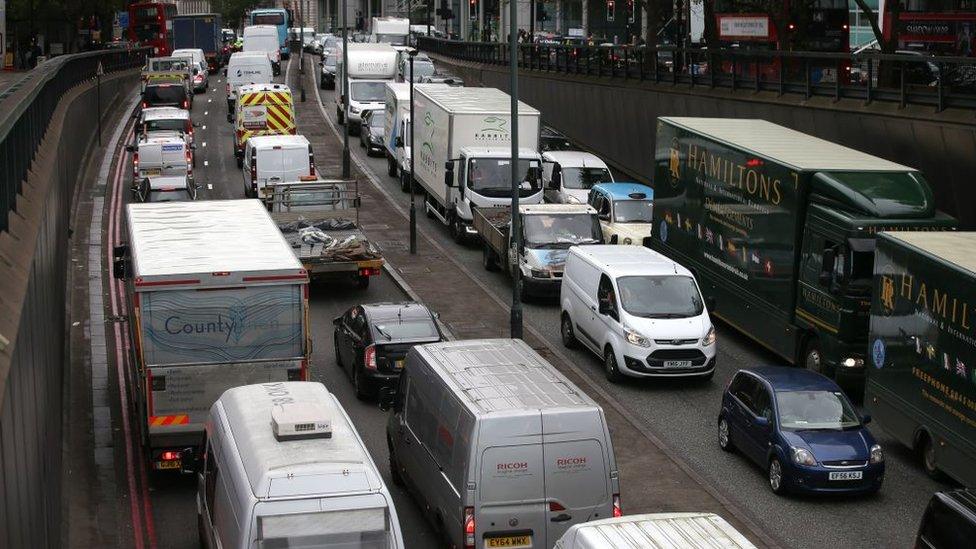Speed limit to be lowered to 20mph in Wales
- Published
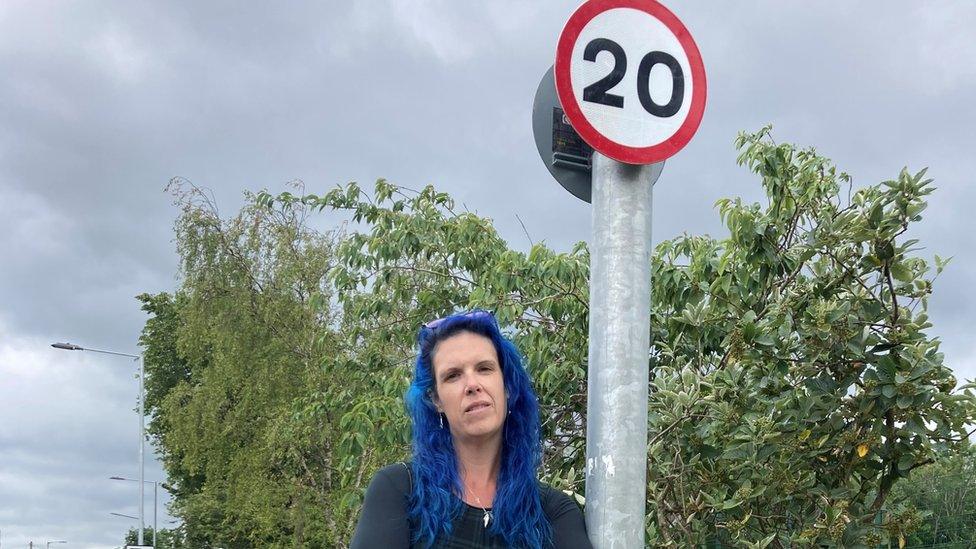
Adie Drury started a petition against the plan because she says "it doesn't make any sense" to put 20mph limits on busy through main roads
Speed limits in built-up areas will be reduced from 30mph to 20mph in Wales from next year - a UK first that is controversial among some drivers.
Ministers have said a 20mph speed limit will lower road collisions and noise and encourage people to walk or cycle.
The slower limit has been divisive in areas where there have been trials with some motorists complaining of more congestion and journeys taking longer.
The Welsh Parliament passed the law, external in a vote on Tuesday afternoon.
It was backed by Labour and Plaid Cymru but opposed by the Welsh Conservatives, who said the blanket rollout is "ludicrous".
Many UK towns and cities have 20mph limits on residential roads but Wales will become the first nation to impose it as the default on all restricted roads - with Scotland set to follow suit in 2025, external.
Leading active travel groups claim Wales will become the world's first nation to adopt a national 20mph default speed limit on residential streets.
How much does lower speed reduce risk?
Latest police data shows, external the largest proportion - exactly half - of the 5,570 people hurt in collisions in Wales happened on 30mph roads.
The statistics also show that of the 1,131 people killed or seriously injured on Welsh roads in 2018, 40% of the incidents happened in 30mph zones.
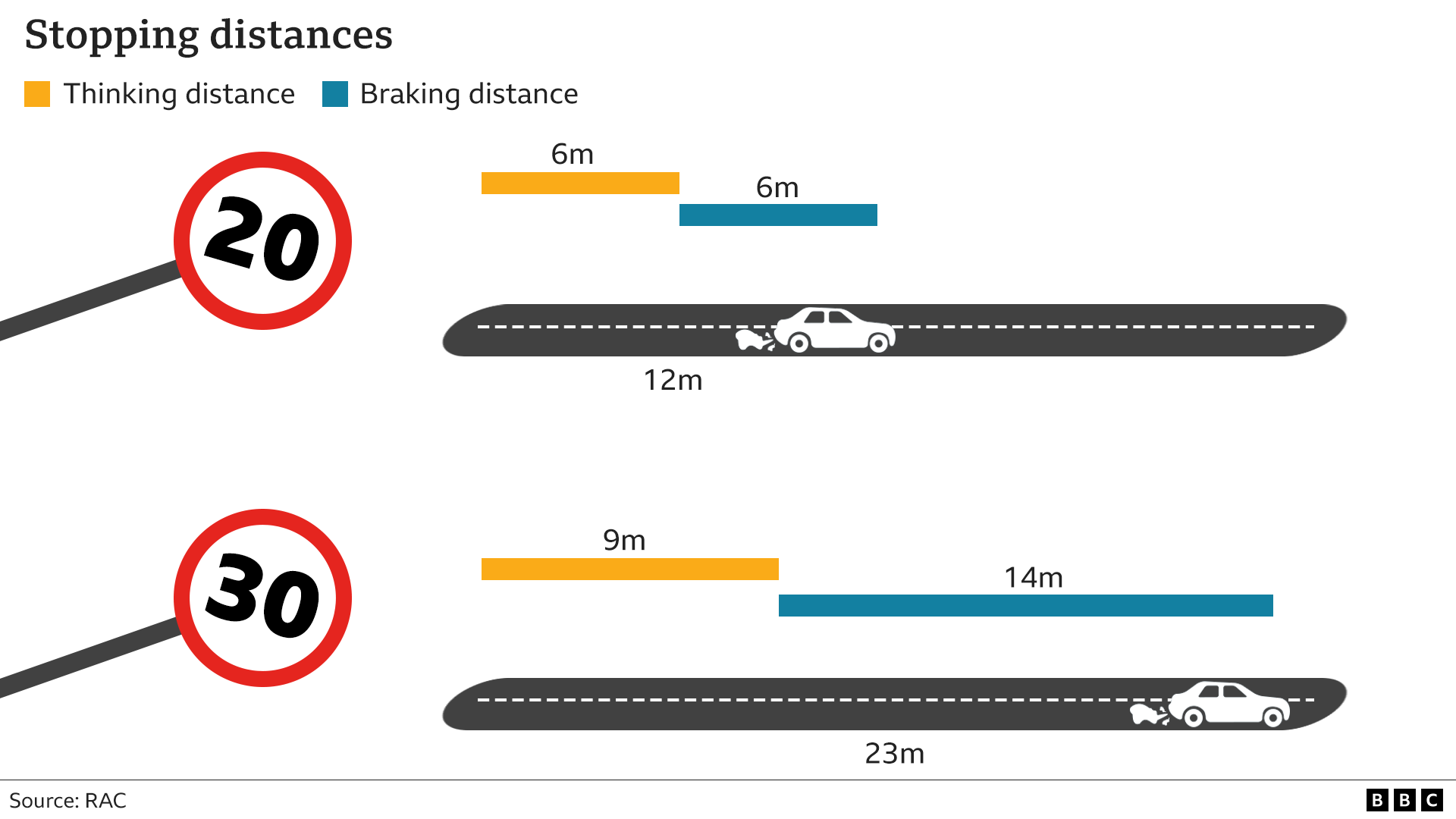
Campaigners argue the chances of someone surviving being hit by a car at 20mph rather than 30mph is seven times higher while stopping distances are almost halved.
"We know that 20mph zones reduce speed of traffic, reduce accidents - particularly accidents to children," Wales' First Minister Mark Drakeford said.
"We want to see that become the default position right across Wales."
Government claims 20mph limit could save money
The new 20mph limit - which will cost an estimated £33m to bring in - will come into force in September 2023.
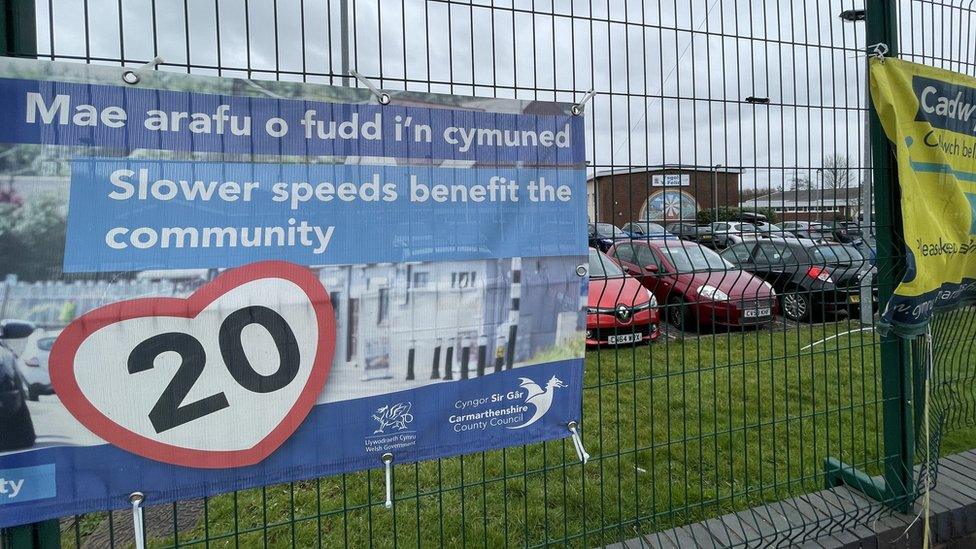
A sign of things to come? Most residential roads in Wales could see 20mph restrictions next year
The Welsh government claim improved road safety and a reduction in average speeds could result in a £58m saving over 30 years because of reduced emergency service demand and subsequent hospital treatment.
But according to respondents to a Welsh government-commissioned consultation, more people were against the speed limit than supported it.
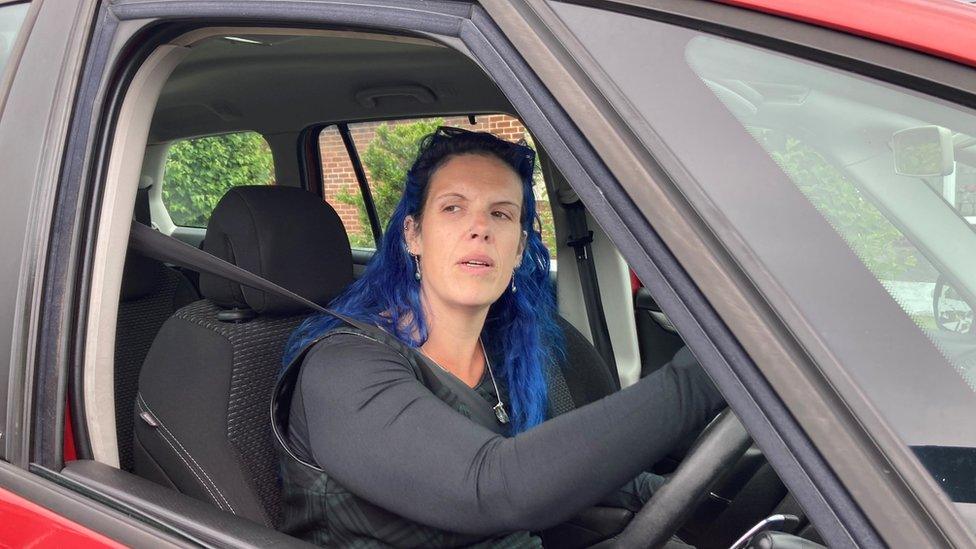
Ready, steady, slow.... Adie Drury's petition claims a blanket 20mph residential road speed limit will cause chaos
The argument against - 'Bikes are overtaking cars'
After a pilot in her community in Buckley, Flintshire, Adie Drury started a petition against what she calls the "non-democratic whitewash" and has got more than 12,500 signatures.
"The community has no problem with a 20mph limit where it's necessary and where it's safe, like outside schools, health centres in housing estates and in heavily pedestrianised areas," said the 39-year-old mum.
"I was raised on a housing estate and played football in the road when I was a child and it's good to invite the community into the road-space - but it should be where it is appropriate.
"You wouldn't want your child playing football in an arterial road so why is the arterial road being made 20mph?
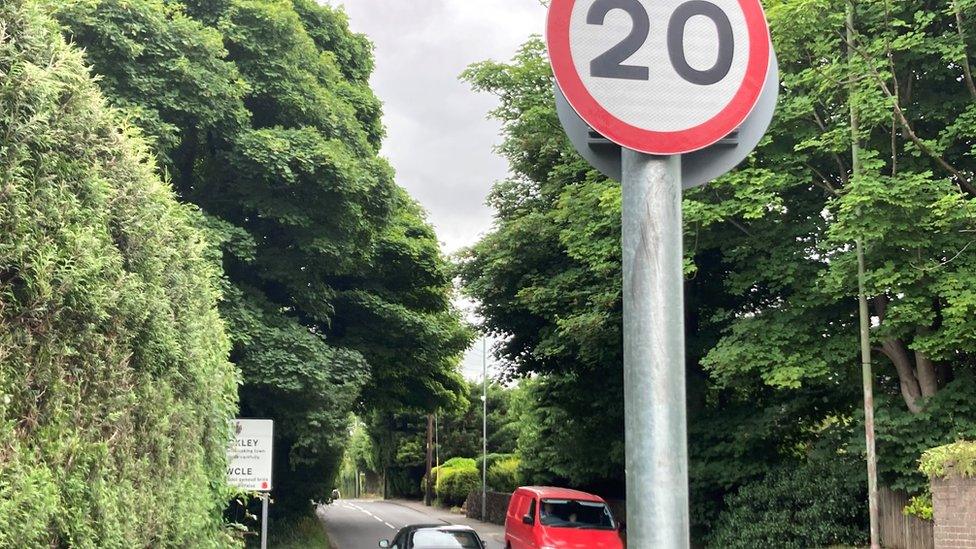
Buck-le up... Buckley was one of eight 20mph pilot areas across Wales and not everyone there backs the plan
"Cyclists are having a whale of a time on Liverpool Road because they can do more than 20mph on their bikes and we can't do more than 20mph in a car - so I've had quite a lot of reports of people being overtaken by cycles."
A 20mph national default speed limit would apply on restricted roads, in residential areas and busy pedestrian streets, where streetlights are less than 200 yards apart - and anyone caught speeding could face a minimum £100 fine and three penalty points, external.

Rob Mackey says someone will always be unhappy with plan whether it's people who live in the street or commuters
The argument in favour - 'A car going 30mph can feel quite threatening'
Rob Mackay is chairman of the local running club and he thinks a lower speed limit will "benefit the wider community".
"It's better for the runners, walkers, people with their dogs and cyclists," said the 74-year-old.
"If I lived on Liverpool Road I'd have one view; if I drove up and down Liverpool Road on a regular basis, I would have a different view - the Welsh government has to balance the two.
"If you live on a street, the slower the traffic past your house then the better the environment - some of it is about air pollution but noise pollution too. There's far more to it than the traffic getting jammed up."
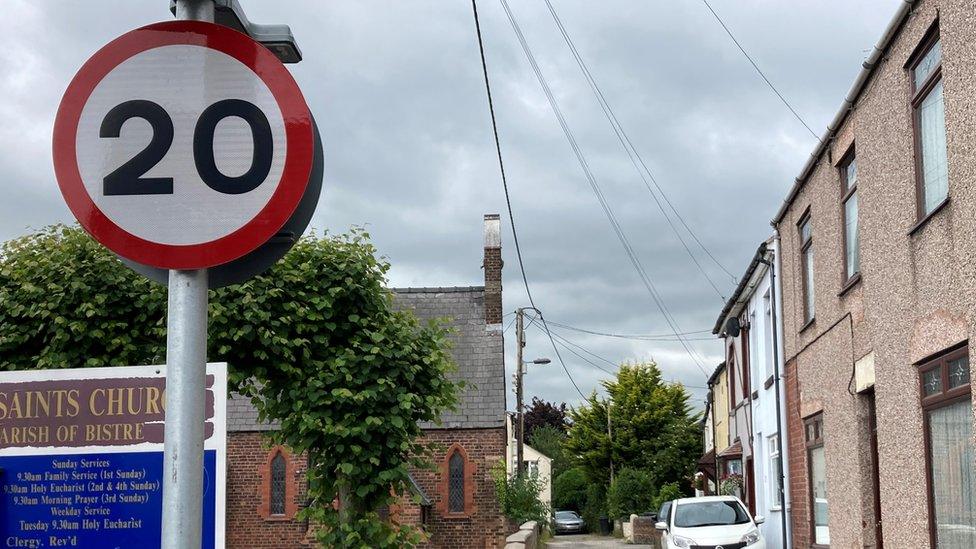
Some would argue twenty's plenty on residential roads but it has also caused a bit of road rage
Rob, who lives in nearby Northop, has been part of Buckley Runners for 30 years and has noticed a difference when he has been pounding the roads in this part of Flintshire.
"If a car passes me at 20mph, it's less unsettling than a car passing at 30mph," said Rob.
"And I'm well aware that there are plenty of cars that don't even stick to 30mph and, particularly in the dark, that can feel quite threatening. So a lower limit does make things better.
"I'm old enough to remember when they introduced breathalysers and if we'd had social media in those days, it would have screamed. Now accept the fact that you can't go out and drink 15 pints and drive home. Change happens."
'How can I drop off kids then travel to work on a bike?'
Ministers in Cardiff are also promoting sustainable travel - like cycling or walking - after Wales declared a climate emergency in 2019 and aim to become carbon net zero by 2050, external and they think a lower limit might encourage a change in behaviour.
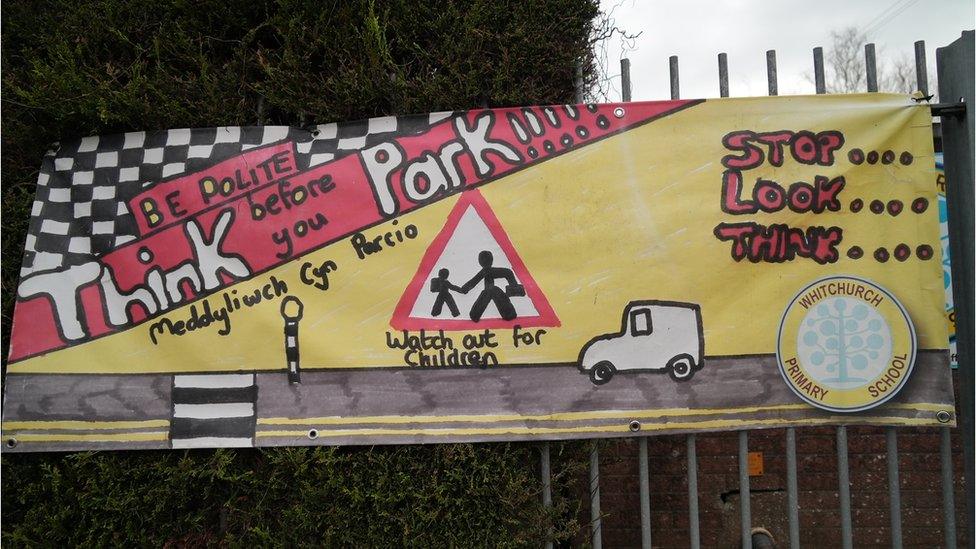
The Welsh government have committed to make road safer, especially around schools
"They would like us to stop using our cars and use our legs to cycle and walk, but we haven't got the infrastructure to do that here," points out Adie, a health and social care student at Chester University.
"We've no cycle lanes, have narrow lanes and public transport is poor. We don't all live in Cardiff and have Cardiff's infrastructure, public transport and industry on our doorstep.
"Our nearest cities and big towns is where our industry is and that's where people have to travel to, you can't do 15 to 20 miles each way on a bike when you've got kids to pick up and drop off. In rural places, that isn't possible and that needs to be recognised.
'Improve travel infrastructure first'
"Nobody is in favour of worsening safety on the roads or making it more dangerous for children and people to cross the road but at the same time, people have got busy lives.
"Our message to government before they inflict this sort of thing on another town is improve infrastructure and involve the community. Give us the cycle lanes and an alternative to the car first."
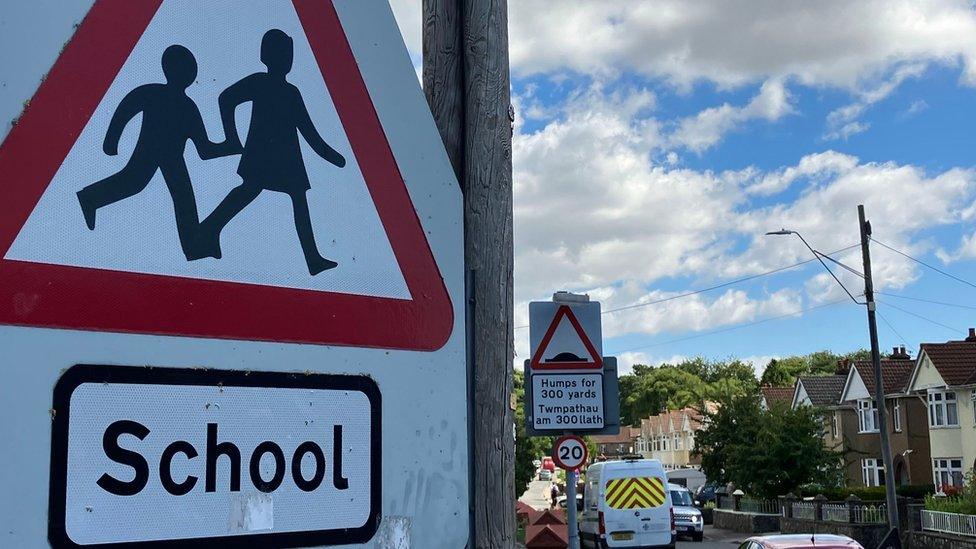
Councils can make exceptions for 20mphs residential road limits, just not outside schools
The Welsh government have acknowledged the new lower limit won't be appropriate everywhere and local authorities can make exceptions, though not outside schools.
'Considerably less expensive'
Although road collisions in Wales have fallen from more than 10,000 a year in 1993 to around 4,000 according to the latest figures, the Welsh government has committed to making roads even safer, external.
Now 30 years after the Austrian city of Graz became the first area to introduce a 20mph or 30km/h limit on all residential streets in one area - it is set to be rolled out across Wales.
In the UK, the first 20mph limit was at a road junction in the Tinsley area of Sheffield in 1991 and now cities like Portsmouth, external, Norwich, Oxford and Bristol are among those that have the lower limit on residential roads.
Allow X content?
This article contains content provided by X. We ask for your permission before anything is loaded, as they may be using cookies and other technologies. You may want to read X’s cookie policy, external and privacy policy, external before accepting. To view this content choose ‘accept and continue’.
The Royal Society for the Prevention of Accidents (Rospa) has encouraged wider use of 20mph limits, external as a "considerably less expensive" way than introducing traffic calming measures, adding it "greatly improves the character of a residential area and quality of life for residents".
Wales' leading active travel organisations back a 20mph residential road limit, pointing to Rospa research, external that claims pedestrians are 40% less likely to die when hit by a car travelling at 20mph compared with one travelling at 30mph.
Living Streets said there was "typically an average decline in casualties of at least 20%" with a 20mph speed limit compared to 30mph as Sustrans Cymru said they want "communities built for safety rather than speed".
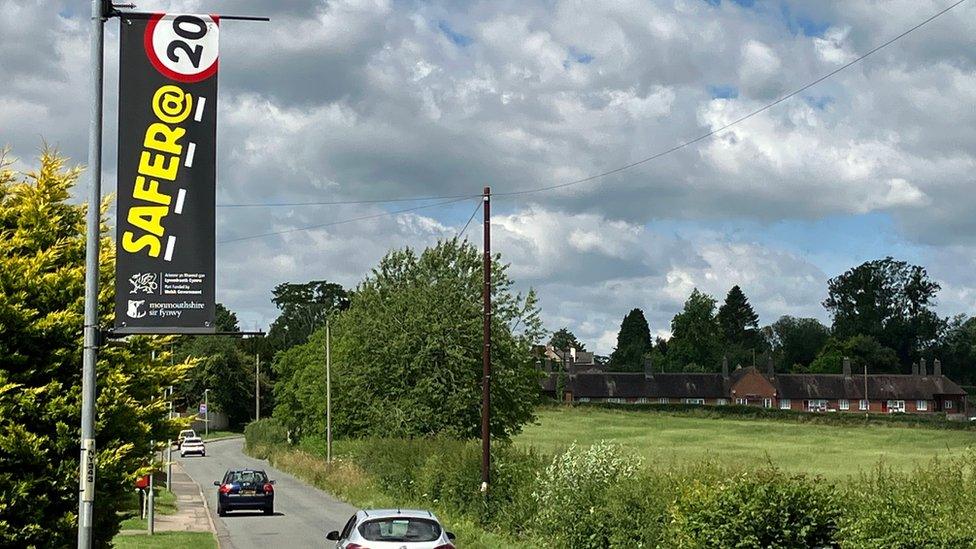
Wales' 20mph pilot areas included areas of Monmouthshire, Cardiff, Carmarthenshire, Vale of Glamorgan, Pembrokeshire, Neath Port Talbot as well as Flintshire
Conservative Shadow Minister for Transport, Natasha Asghar, said: "The Welsh Conservatives are not against introducing 20mph speed limits outside schools, playgrounds, places of worship and high streets, but a blanket rollout is quite frankly ludicrous."
"Speed limits like this should be decided by councils in their local areas, not top-down by Labour ministers," she added.
Both Labour and Plaid Cymru, who have a co-operation agreement in the Welsh Parliament, back the countrywide rollout of 20mph. They hold almost three-quarters of the 60 Senedd seats, which allowed Tuesday's proposal to pass.
In the vote itself 39 backed the legislation, while 15 opposed it.
"We are united in our belief that this change will bring about a reduction in road collisions and their severity, while creating more opportunities to walk and cycle in communities," said Plaid's transport spokeswoman Delyth Jewell.
"A 20mph speed limit in built-up areas will allow us to work toward providing convenient, safe, pedestrian access to the places people need to go."

CHALLENGING MISCONCEPTIONS: Life in Britain’s biggest special school
BORN DEAF, RAISED HEARING: What it means to live in two different worlds

- Published23 April 2024
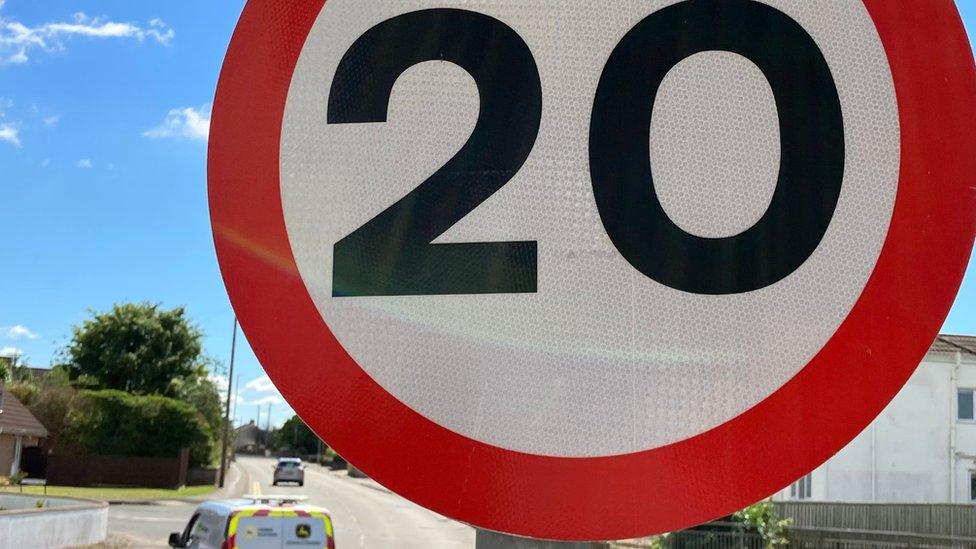
- Published11 March 2022
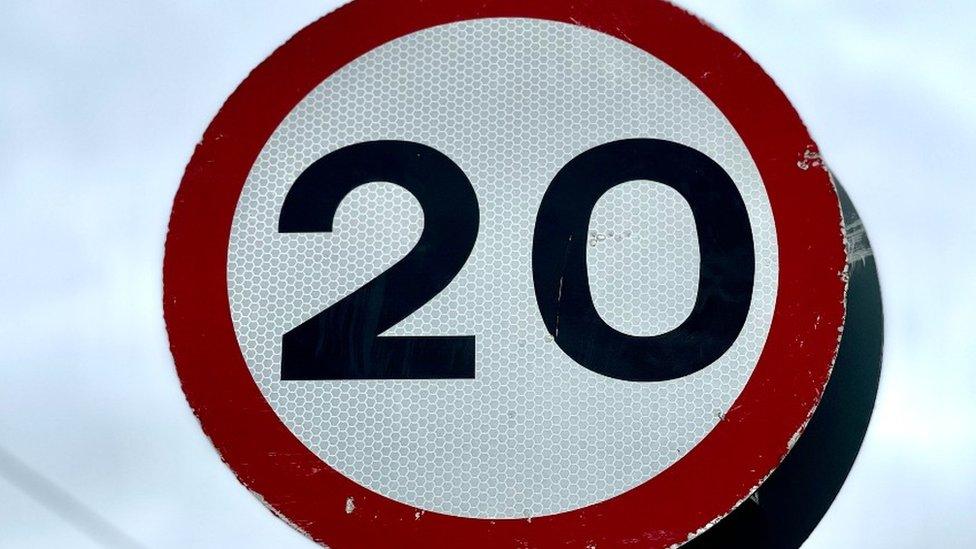
- Published7 July 2021
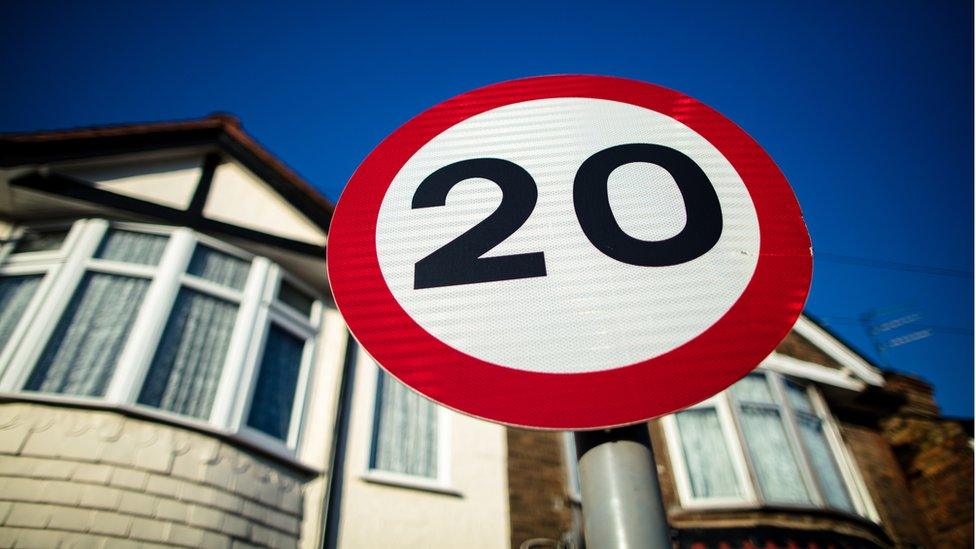
- Published27 September 2021
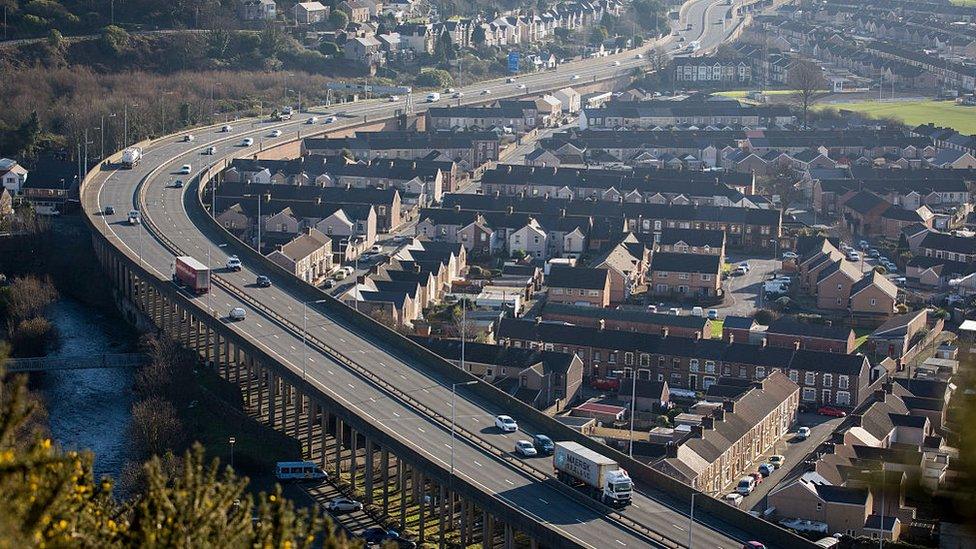
- Published19 September 2021
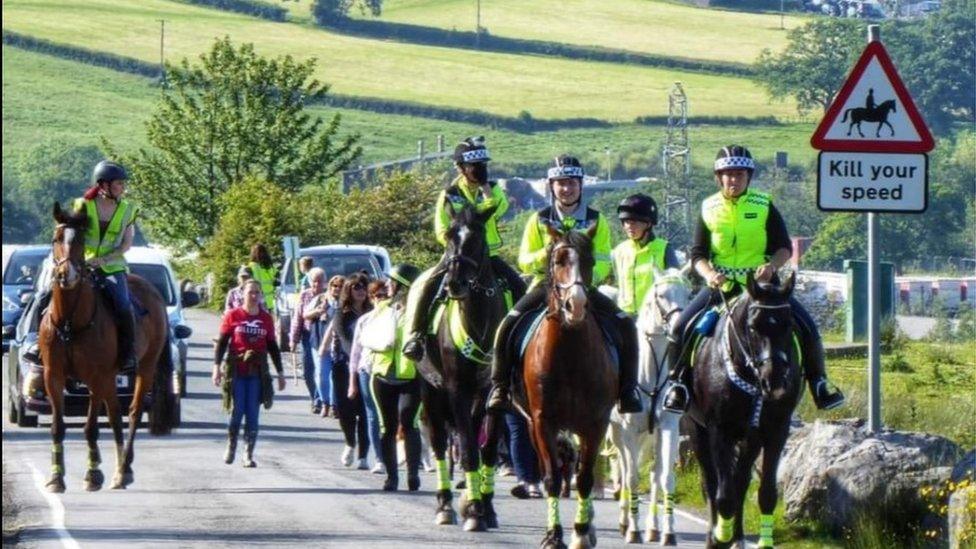
- Published30 June 2021
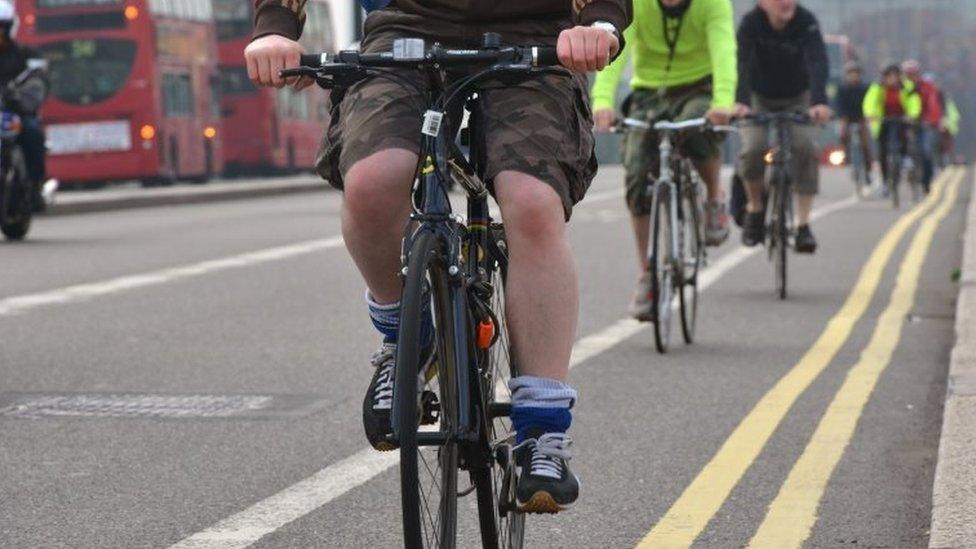
- Published15 July 2020
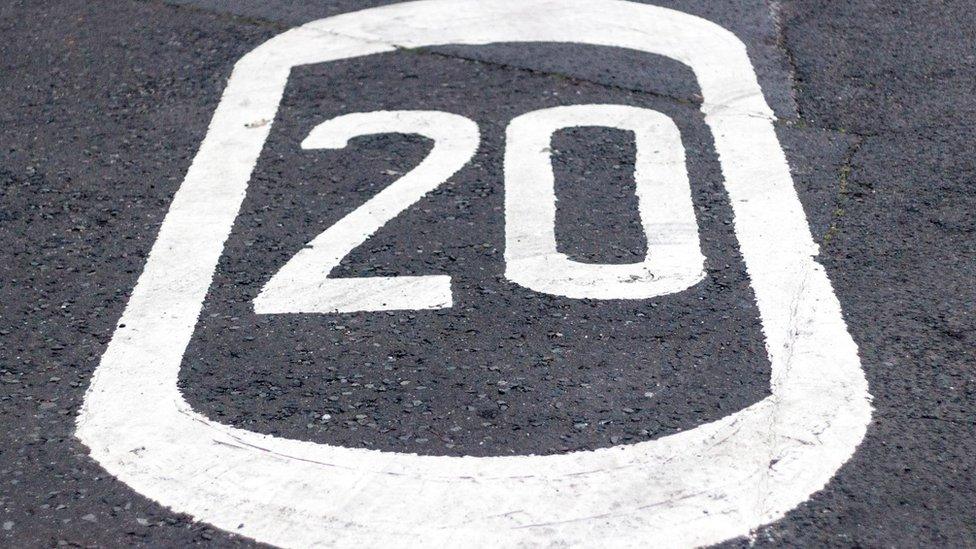
- Published24 July 2018
